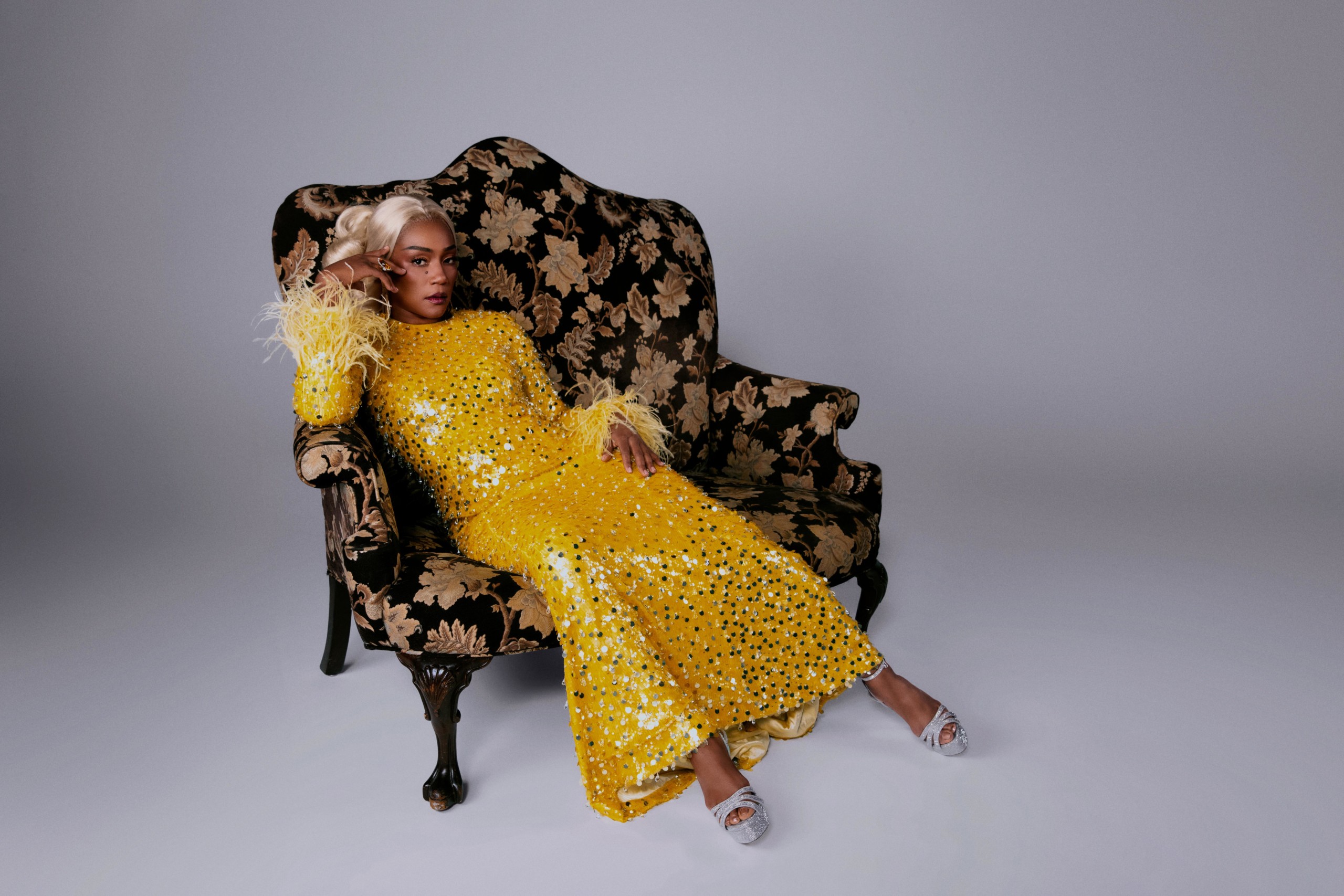
This summer, Tiffany Haddish changed the tune of her singsong voice. Even perceptible in a couple of episodes as Tuca, her cartoon alter ego from Tuca & Bertie (Haddish’s Adult Swim collaboration with fellow comedian Ali Wong and cartoonist Lisa Hanawalt), this switch in tenor was the acoustic signal that not only Tuca but Haddish herself was evolving. Haddish, whose career flourished over the past decade, first as a stand-up and later as necessary billing for any ensemble-cast farces, is now sharing the headline with Oscar Isaac as his love interest and boss in Paul Schrader’s anticipated new poker drama, The Card Counter. The trend continues in her upcoming flick, The Unbearable Weight of Massive Talent (2022), with Nicolas Cage—who she plays straight too. Here, on the occasion of The Card Counter’s release at the Venice Film Biennale, Haddish discusses the pivot with friend and director Schrader, in addition to why gardening is great, paying extra for rehearsal is always worth it and making movies is just like playing pretend.
PAUL SCHRADER: You’re looking good.
TIFFANY HADDISH: So are you. You’ve lost some pounds, huh? We’re over here getting skinny together.
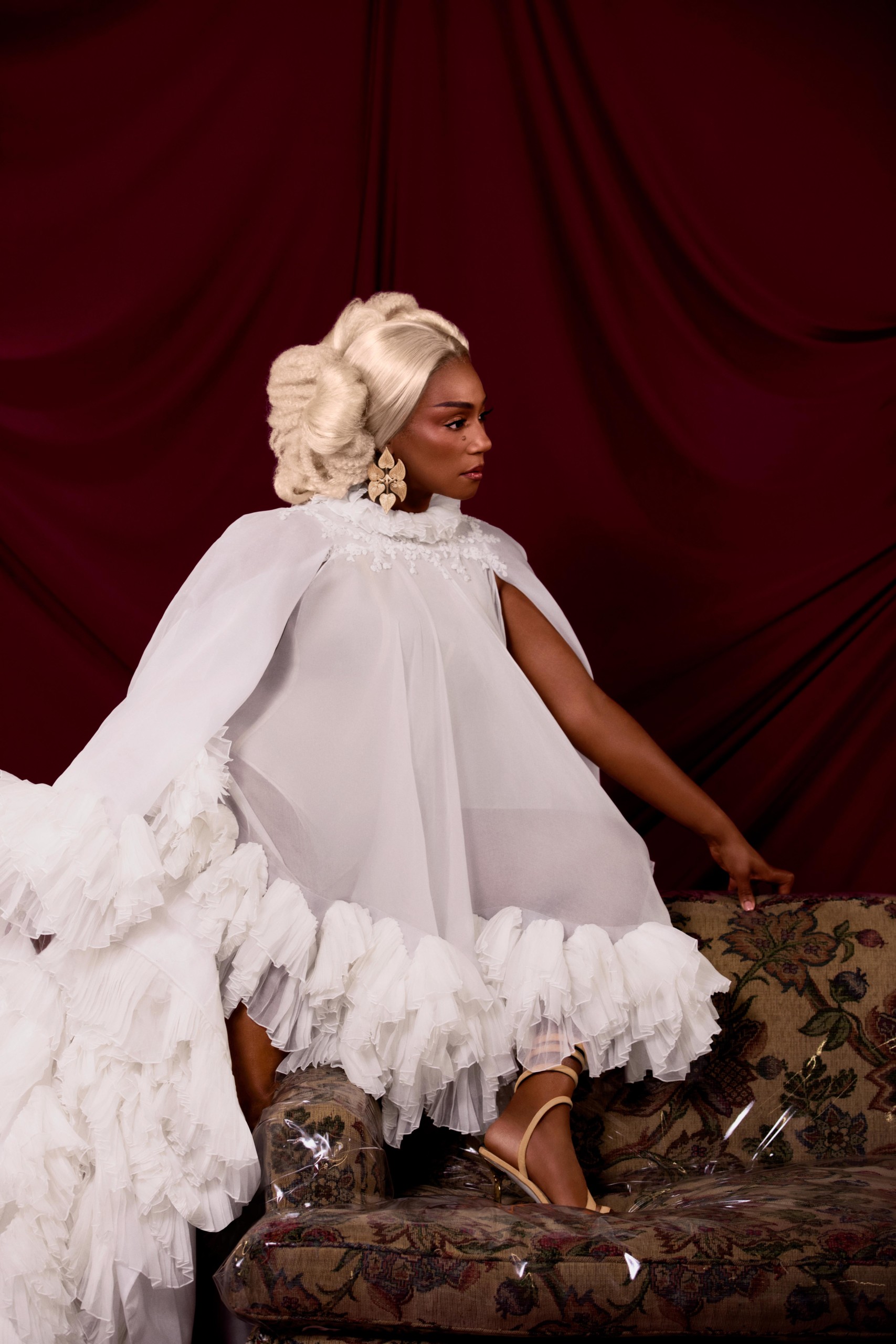
PS: Well, I’ve also stopped drinking.
TH: Where you left off, I picked up.
PS: I’ve got a lot of traveling and work to do.
TH: I was just in Panama wondering why we are not releasing this [movie] in South America? Are we releasing this movie in South America? There are so many casinos in South America and I really love them.
PS: I don’t know what that costs. Today I got an Italian campaign; I’ve got a few other things lined up.
TH: But what about South America? There’s a bunch of people like me and Oscar in South America. There are casinos galore.
PS: I’m sure there’s something in the works. When it comes to this part of the film, I like to keep it at arm’s length because there is nothing you can do about it, it’s going to happen. All you can do is worry.
TH: Paul, I’m just like this: I don’t want to see my movie on bootleg at a fruit stand, because they had Girls Trip (2017) on bootleg at a fruit stand down there.
PS: Well, we should be so lucky (chuckles).
KAT HERRIMAN: I’m wondering how much time you both had spent in casinos prior to making this movie, and how many casinos you spent time in while making it? Did it change the way you saw them?
PS: Well, we made the film on what they call the Redneck Riviera, which is a strip of the Gulf Coast. There were about six or eight casinos that we were able to use. That was our home base. I did some gambling once when I was younger, but it doesn’t really interest me that much. I see these kinds of things as metaphors. I never rode as a taxi driver, I was never a gigolo, I was never a society escort, I was never a drug dealer. I was never a raver, but I find these occupations of interest, metaphorically.
The same thing about poker players. There’s something interesting about the deadness of that occupation. That’s what draws me: not the occupation itself, the metaphorical quality of the occupation. The next one I’m going to do is about a horticulturalist.
TH: You’re doing my life story.
PS: Are you a horticulturist?
TH: Oh my gosh. Can I show you my garden right now? We had a wonderful production of plums this year, then I got huge bell peppers growing, cayenne pepper and tomatoes. Oh, I’m growing Devil’s Breath. Horticulturists can make drugs, you know.
PS: With all these plants have you been able to get on the road?
TH: Yes, that’s why my coffee plant is dying. I just came back from Panama. I was actually there looking to buy some farmland.
PS: But what about on the road to work?
TH: Oh, to do stand-up?
PS: Yes.
TH: Yes. Well, no. I haven’t done any stand-up shows out of town. I’ve been doing a bunch in town though and I love it. It’s good money. It’s better money than I’ve ever made doing comedy shows before.
PS: How big an audience can you have now with COVID in LA?
TH: Well, to be honest, I’m not sure. I feel like a lot of these shows are illegal. If you want to write a movie about horticulturalists and their illegal doings, I got your back.
KH: How about illegal casino trade?
TH: I spent a lot of time in the casinos before this movie. A lot of stand-up comedy happens in casinos. I spent three years at the San Manuel Casino doing comedy shows and gambling. I only played blackjack and I never spent more than $20. If I lost $20, I was out.
PS: You had worked at this very casino that was our home base, right?
TH: Yes, I did a comedy show there. I sure did. I’ve done comedy shows at casinos all over the country.
KH: Now, when you do comedy shows at casinos, will you be thinking of La Linda?
TH: I’ll be honest with you. Playing La Linda didn’t change how I saw casinos. It changed my idea of how a woman can get a man to do certain things, how I approach people about things.
PS: One of the interesting things about working with Tiffany is she’s a trained comedian. It’s from a lesson I learned long ago from Scorsese. In Taxi Driver (1976), we had a role that wasn’t very interesting and he cast Albert Brooks. I said, “Why did you cast Albert?” He said, “Well, the role wasn’t very good. I thought Albert would make something out of it.” I’ve always remembered that, and over the years cast stand-ups as straight performers: Richard Pryor, Cedric the Entertainer and now Tiffany. It’s a way to take a role and put another dimension on it. A little trick I offer up.
Also because these performers want to add another dimension to their career. I said to Cedric, “I don’t want you to be funny.” He said, “If I thought you did, I wouldn’t have taken the job.” (Laughter.)
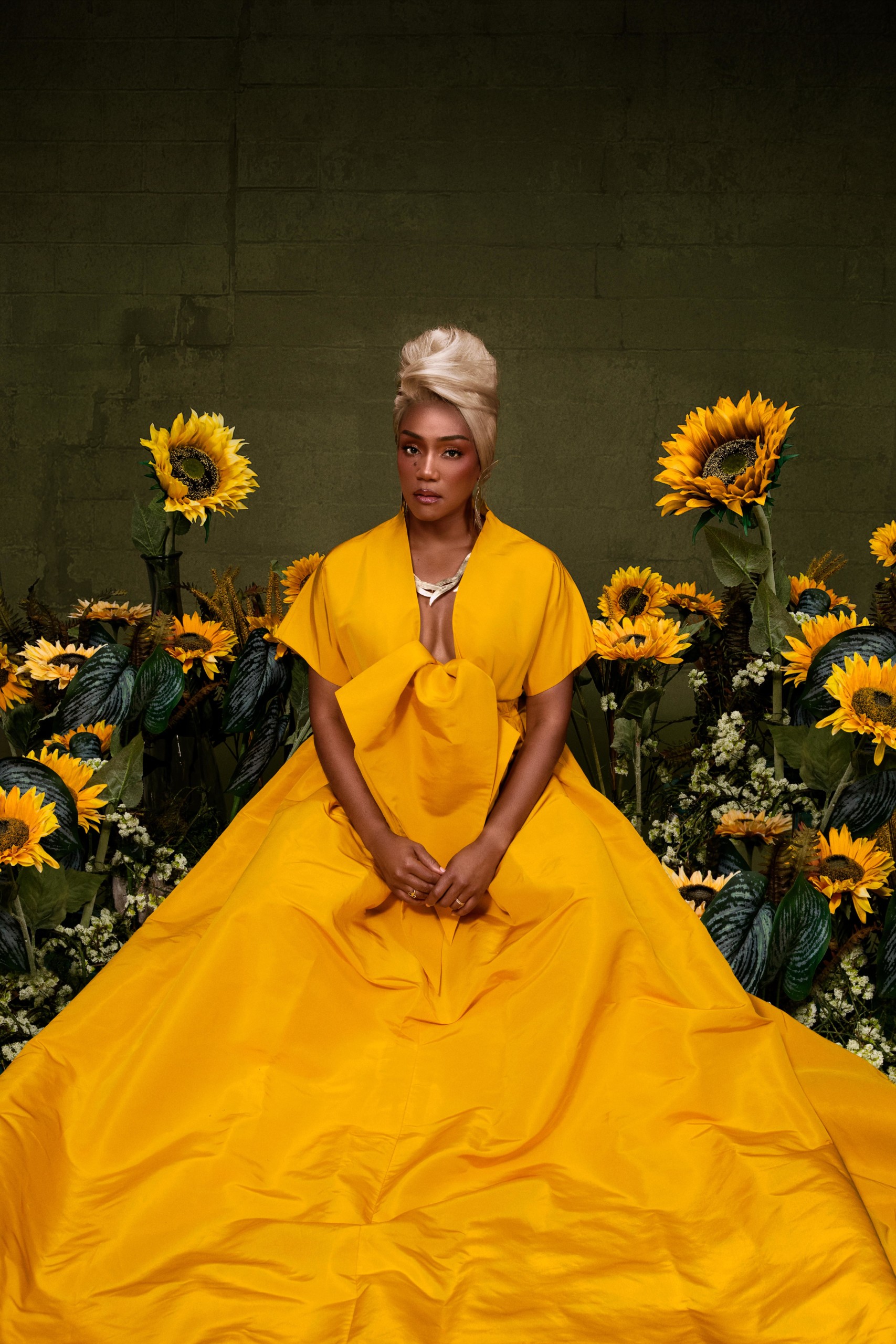
KH: Is Paul accurate?
TH: No, I dreaded every second (laughs). Of course, I was excited. I was more excited about Paul. He could have asked me to be a cat and I would have been super happy about it. I’ve been a fan of his for a very long time. I really think we should do another Cat People (1982).
PS: Well, it was interesting when we first had a reading with Oscar. Tiffany was really overworking the script, because when you’re on stage and you’re live and something dies, it dies. If you’re in a film and something dies, they fix it. I had to tell her, “Pick and choose where you’re going to try to get your laughs or where you’re going to get your emphasis, because if you try to hit every line, it won’t work very well.” I don’t know if you remember that first table reading.
TH: Well now, this is what I will never forget. You said, “Tiffany when you speak, you sing.” I said, “No, I don’t.” And you said, “Yes, you do.” I said, “No. I don’t.” You said, “Yes, you do.” I said, “No, I don’t.” You said, “Yes, you do.” (Laughter.) And then I realized, “Oh, I do.” When you’re doing stand-up, there’s a rhythm to it. PS: The rhythm tells people when to laugh.
TH: Exactly. It was definitely me working on just being straight, which sometimes feels boring to me in the moment. Then when it’s done, when he goes, “Cut.” I’m like, “Damn, that was freaking awesome. That was really good.” It was a little uncomfortable because I was definitely not in my arena, but I was having fun playing somebody else’s game, if that makes sense.
And what’s great about working with Paul is he knew exactly what he wanted and how he wanted it. I love that we rehearsed the way we did, because I knew exactly what to expect when I came in to do the scenes. It wasn’t like, “Is this going to be good enough? I hope they like this.” I already know what Paul wants, so I know what to give him. That is a ton of relief.
PS: One of the upsetting things I’ve heard from actors is they run into more and more productions that don’t like to pay for that extra week for the actors to be on location. Rehearsal time is the best time of all because there’s no responsibility. You can fail in every possible way. The fact that you’re supposed to do it. You have to learn how to fail at rehearsal so you don’t have to fail on somebody else’s dime.
I was just talking to Sigourney Weaver, who’s, obviously, not a newcomer, and she says, “A lot of the films that I do, there’s no rehearsals.” She came up through that old school where you rehearse, you rehearse and rehearse. I feel sorry for some of these younger actors who don’t get rehearsal time.
TH: Every movie that I’ve ever been in where we had rehearsal has made over $100 million. I’m just going to say that. I’m just putting that out there. Every movie that we didn’t have rehearsal only made like $80 million (laughs). But it’s true. [Rehearsal] gives you a chance to pretend to try different ways. Remember, Paul, I was trying so many different ways? I tried an accent at one point.
PS: I have a question, Tiffany. I’m very curious about this film that Nick [Cage] has just done where he plays himself. You were in that, right?
TH: Yes.
PS: What did you play?
TH: A federal agent.
PS: Nick Cage has done a film where they paid him a godsmack of money to play himself. I’m just very interested in how that’s going to come out.
TH: I think it’s going to be hilarious. My character’s not funny at all. I don’t say or do anything funny. My job in that movie is to push the story forward. I literally bring the “oh shit” moments to the table. I create conflict for him, but I’m very straight, not funny at all. It would’ve helped me so much working with you because it helped me take the music out of my voice.
KH: I’m wondering how rehearsal effects on-screen chemistry, which you and Oscar had so much of. What challenges do you face when creating on- scene intimacy?
TH: Well, I love playing imaginary. I’ve been playing it for many, many years. It helps me to escape the pain of life that happens from time to time. Have you ever played house?
Your mom and brothers and sisters, your aunties and uncles, everybody is at the house, but you’re playing house with your next-door neighbor. You’re bossing him around, saying, “You’re the husband, and you need to do this, and you need to do this.” There are people all around you, but you are playing together, right? This is the way I’ve always imagined it. The cameras are like Mom and Dad and we are just two actors playing house, playing travelers, playing whatever. [The cameras] are there, but they don’t really matter. What matters is who I am playing with. Who am I creating this slice of life with?
So with Oscar we connected beforehand. We have got a lot of things in common, and when those cameras are right there, we were right here [motioning to eyes]. There’s a lot of, I would say, eye gazing involved. There’s a lot of paying attention to his body language, my body language.
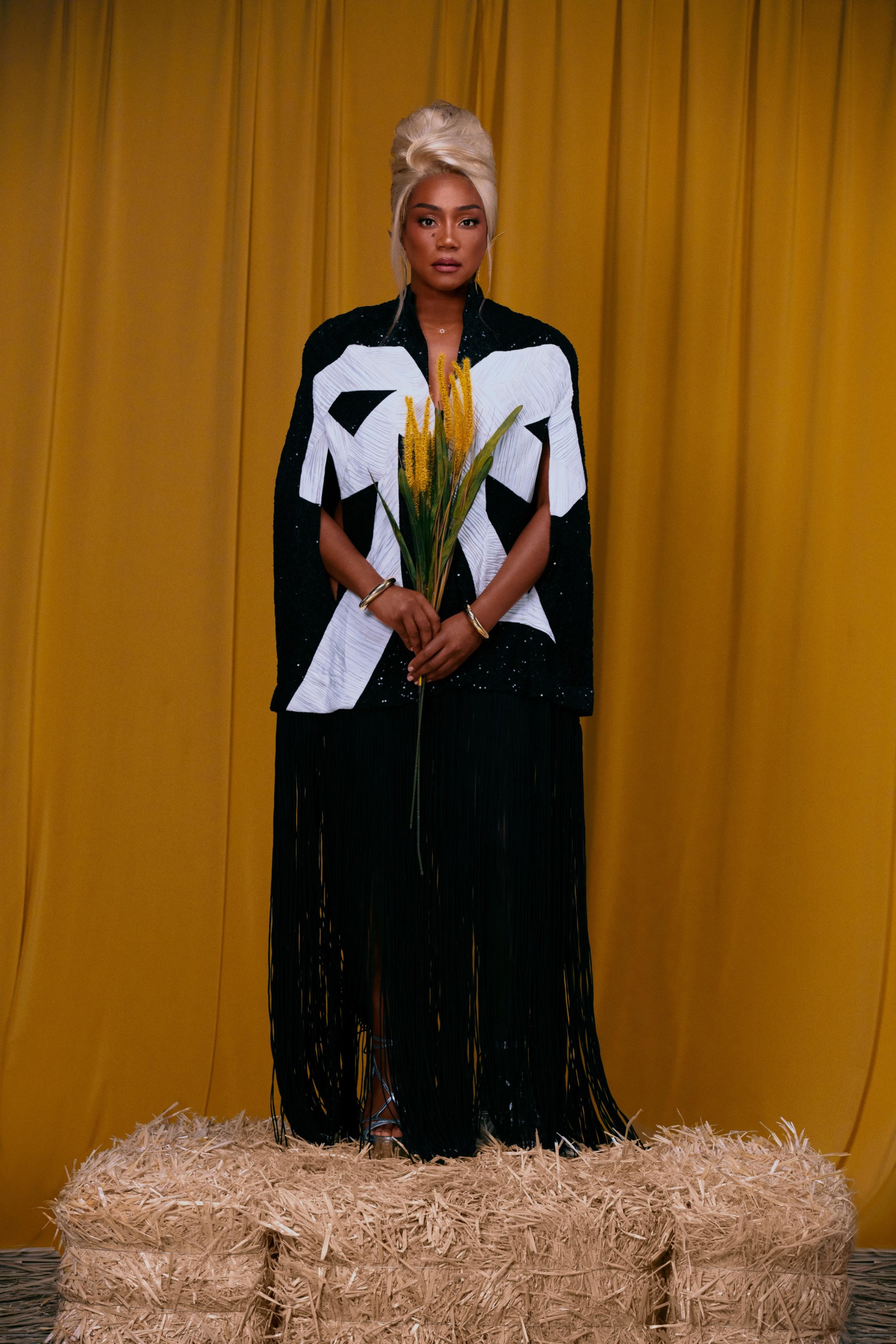
PS: One of the interesting things about COVID, we got shut down about 75% of the way through, and we had a long hiatus before we were able to come back and finish.
Because of this I could show parts of the film to various people, like Scorsese, and ask: “What am I missing? What am I missing?” One of the things that I started to realize I was missing was the push-pull between these two characters.
It was during that interim where I wrote that thing where he says to her, “I like this thing we have.” She says, “What thing?” He says, “This friendship.” In order to just suddenly put the knife at it and say that she doesn’t want this to be a friendship, and he doesn’t know how much he’s heard it.
KH: What was it like returning to La Linda and navigating this moment of love unrequited?
TH: For me it was like, “Okay, I know this feeling, I know what this is. I’ve been there. I know how to deliver that.” It was like a whole other chunk of character. It was a lot of conversations with Paul like, “Exactly what do you want? Will you break it down for me?” Overall, I enjoyed it. I felt like it was the best learning experience for me.
KH: You had said that playing La Linda taught you new ways to manipulate men? I’m wondering if you’ve taken those lessons into your real life or if you’ve used them on Paul.
TH: No, I haven’t used it on Paul. I just keep it straight-up with Paul. I might’ve used it in my personal experiences though. Let’s see what happens when I take the music out of my voice and get real quiet.
Craving more culture? Sign up to receive the Cultured newsletter, a biweekly guide to what’s new and what’s next in art, architecture, design and more.
https://vimeo.com/605137029/5bd60112e9 Video by Jeff Vespa.

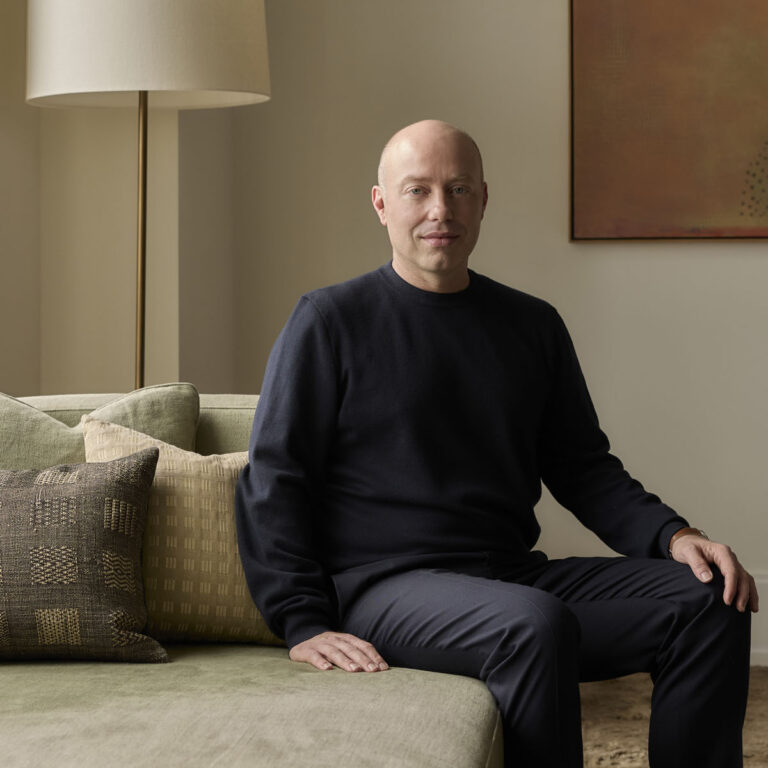
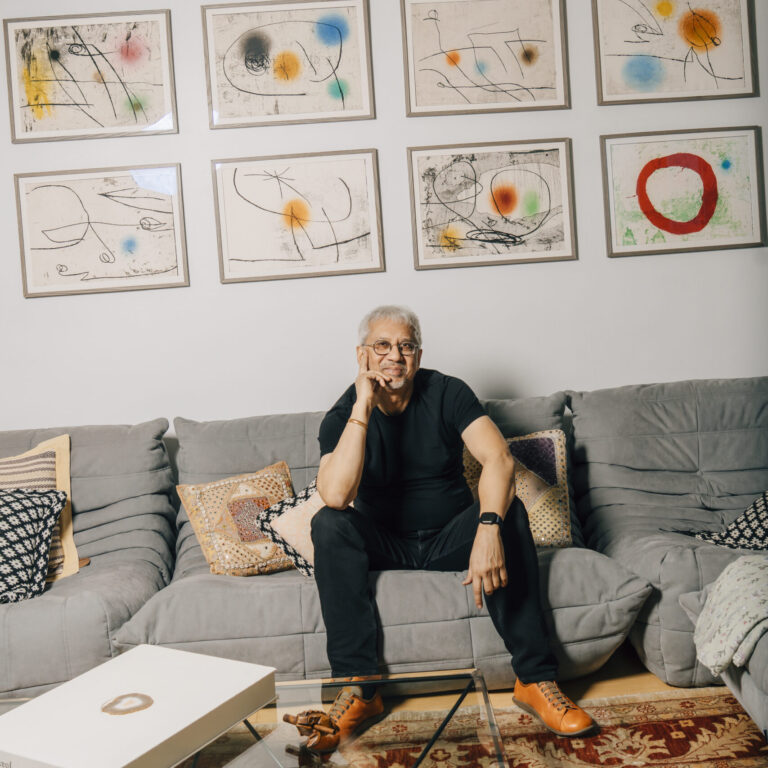
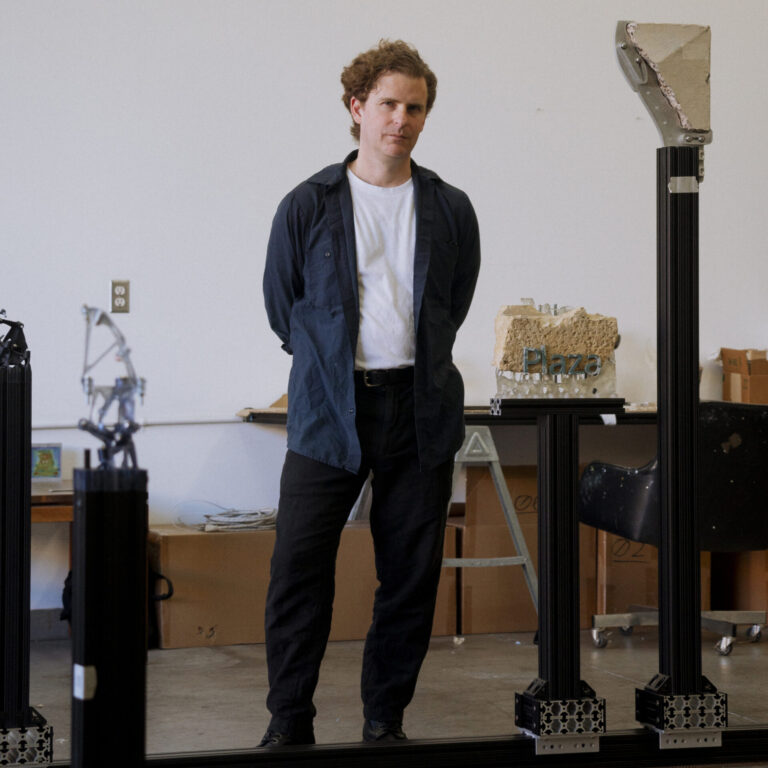

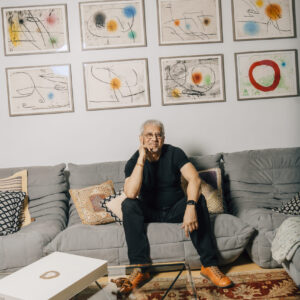
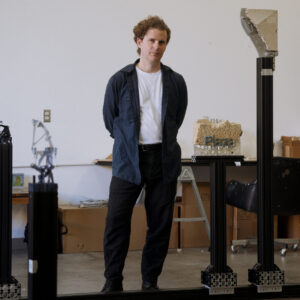



 in your life?
in your life?

